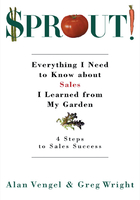"Mournful is't to say Farewell,
Though for few brief hours we part;
In that absence, who can tell
What may come to wring the heart!"
—ANONYMOUS.
The events recorded in the last chapter took place on a Tuesday. On Thursday afternoon Mary was surprised, in the midst of some little bustle in which she was engaged, by the entrance of Will Wilson. He looked strange, at least it was strange to see any different expression on his face to his usual joyous beaming appearance. He had a paper parcel in his hand. He came in, and sat down, more quietly than usual.
"Why, Will! what's the matter with you? You seem quite cut up about something!"
"And I am, Mary! I'm come to say good-bye; and few folk like to say good-bye to them they love."
"Good-bye! Bless me, Will, that's sudden, isn't it?"
Mary left off ironing, and came and stood near the fireplace. She had always liked Will; but now it seemed as if a sudden spring of sisterly love had gushed up in her heart, so sorry did she feel to hear of his approaching departure.
"It's very sudden, isn't it?" said she, repeating the question.
"Yes, it's very sudden," said he dreamily. "No, it isn't"; rousing himself to think of what he was saying. "The captain told me in a fortnight he would be ready to sail again; but it comes very sudden on me, I had got so fond of you all."
Mary understood the particular fondness that was thus generalised.
She spoke again.
"But it's not a fortnight since you came. Not a fortnight since you knocked at Jane Wilson's door, and I was there, you remember. Nothing like a fortnight!"
"No; I know it's not. But, you see, I got a letter this afternoon from Jack Harris, to tell me our ship sails on Tuesday next; and it's long since I promised my uncle (my mother's brother, him that lives at Kirk-Christ, beyond Ramsay, in the Isle of Man) that I'd go and see him and his, this time of coming ashore. I must go. I'm sorry enough; but I mustn't slight poor mother's friends. I must go. Don't try to keep me," said he, evidently fearing the strength of his own resolution, if hard pressed by entreaty.
"I'm not a-going, Will. I dare say you're right; only I can't help feeling sorry you're going away. It seems so flat to be left behind. When do you go?"
"To-night. I shan't see you again."
"To-night! and you go to Liverpool! Maybe you and father will go together. He's going to Glasgow, by way of Liverpool."
"No! I'm walking; and I don't think your father will be up to walking."
"Well! and why on earth are you walking? You can get by railway for three-and-sixpence."
"Ay, but Mary! (thou mustn't let out what I'm going to tell thee) I haven't got three shillings, no, nor even a sixpence left, at least, not here; before I came I gave my landlady enough to carry me to the island and back, and maybe a trifle for presents, and I brought the rest here; and it's all gone but this," jingling a few coppers in his hand.
"Nay, never fret over my walking a matter of thirty mile," added he, as he saw she looked grave and sorry. "It's a fine clear night, and I shall set off betimes, and get in afore the Manx packet sails. Where's your father going? To Glasgow did you say? Perhaps he and I may have a bit of a trip together then, for, if the Manx boat has sailed when I get into Liverpool, I shall go by a Scotch packet. What's he going to do in Glasgow?—Seek for work? Trade is as bad there as here, folk say."
"No; he knows that," answered Mary sadly. "I sometimes think he'll never get work again, and that trade will never mend. It's very hard to keep up one's heart. I wish I were a boy, I'd go to sea with you. It would be getting away from bad news at any rate; and now, there's hardly a creature that crosses the door-step, but has something sad and unhappy to tell one. Father is going as a delegate from his Union, to ask help from the Glasgow folk. He's starting this evening."
Mary sighed, for the feeling again came over her that it was very flat to be left alone.
"You say no one crosses the threshold but has something sad to say; you don't mean that Margaret Jennings has any trouble?" asked the young sailor anxiously.
"No!" replied Mary, smiling a little; "she's the only one I know, I believe, who seems free from care. Her blindness almost appears a blessing sometimes; she was so down-hearted when she dreaded it, and now she seems so calm and happy when it's downright come. No! Margaret's happy, I do think."
"I could almost wish it had been otherwise," said Will thoughtfully. "I could have been so glad to comfort her, and cherish her, if she had been in trouble."
"And why can't you cherish her, even though she is happy?" asked
Mary.
"Oh! I don't know. She seems so much better than I am! And her voice! When I hear it, and think of the wishes that are in my heart, it seems as much out of place to ask her to be my wife, as it would be to ask an angel from heaven."
Mary could not help laughing outright, in spite of her depression, at the idea of Margaret as an angel; it was so difficult (even to her dressmaking imagination) to fancy where, and how, the wings would be fastened to the brown stuff gown, or the blue and yellow print.
Will laughed, too, a little, out of sympathy with Mary's pretty merry laugh. Then he said—
"Ay, you may laugh, Mary: it only shows you've never been in love."
In an instant Mary was carnation colour, and the tears sprang to her soft grey eyes. She that was suffering so much from the doubts arising from love! It was unkind of him. He did not notice her change of look and of complexion. He only noticed that she was silent, so he continued—
"I thought—I think, that when I come back from this voyage, I will speak. It's my fourth voyage in the same ship and with the same captain, and he's promised he'll make me a second mate after this trip; then I shall have something to offer Margaret; and her grandfather, and Aunt Alice, shall live with her, and keep her from being lonesome while I'm at sea. I'm speaking as if she cared for me, and would marry me; d'ye think she does care at all for me, Mary?" asked he anxiously.
Mary had a very decided opinion of her own on the subject, but she did not feel as if she had any right to give it. So she said—
"You must ask Margaret, not me, Will; she's never named your name to me." His countenance fell. "But I should say that was a good sign from a girl like her. I've no right to say what I think; but, if I was you, I would not leave her now without speaking."
"No! I cannot speak! I have tried. I've been in to wish them good-bye, and my voice stuck in my throat. I could say nought of what I'd planned to say; and I never thought of being so bold as to offer her marriage till I'd been my next trip, and been made mate. I could not even offer her this box," said he, undoing his paper parcel and displaying a gaudily ornamented accordion; "I longed to buy her something, and I thought, if it were something in the music line, she would maybe fancy it more. So, will you give it to her, Mary, when I'm gone? and, if you can slip in something tender,— something, you know, of what I feel—maybe she would listen to you, Mary."
Mary promised that she would do all that he asked.
"I shall be thinking on her many and many a night, when I'm keeping my watch in mid-sea; I wonder if she will ever think on me when the wind is whistling, and the gale rising. You'll often speak of me to her, Mary? And if I should meet with any mischance, tell her how dear, how very dear, she was to me, and bid her, for the sake of one who loved her well, try and comfort my poor aunt Alice. Dear old aunt! you and Margaret will often go and see her, won't you? She's sadly failed since I was last ashore. And so good as she has been! When I lived with her, a little wee chap, I used to be wakened by the neighbours knocking her up; this one was ill, and that body's child was restless; and for as tired as ever she might be, she would be up and dressed in a twinkling, never thinking of the hard day's wash afore her next morning. Them were happy times! How pleased I used to be when she would take me into the fields with her to gather herbs! I've tasted tea in China since then, but it wasn't half so good as the herb tea she used to make for me o' Sunday nights. And she knew such a deal about plants and birds, and their ways. She used to tell me long stories about her childhood, and we used to plan how we would go some time, please God (that was always her word), and live near her old home beyond Lancaster; in the very cottage where she was born, if we could get it. Dear! and how different it is! Here is she still in a back street o' Manchester, never likely to see her own home again; and I, a sailor, off for America next week. I wish she had been able to go to Burton once afore she died."
"She would maybe have found all sadly changed," said Mary, though her heart echoed Will's feeling.
"Ay! ay! I dare say it's best. One thing I do wish though, and I have often wished it when out alone on the deep sea, when even the most thoughtless can't choose but think on th' past and th' future; and that is, that I'd never grieved her. O Mary! many a hasty word comes sorely back on the heart when one thinks one shall never see the person whom one has grieved again!"
They both stood thinking. Suddenly Mary started.
"That's father's step. And his shirt's not ready!"
She hurried to her irons, and tried to make up for lost time.
John Barton came in. Such a haggard and wildly anxious-looking man, Will thought he had never seen. He looked at Will, but spoke no word of greeting or welcome.
"I'm come to bid you good-bye," said the sailor, and would in his sociable friendly humour have gone on speaking. But John answered abruptly—
"Good-bye to ye, then."
There was that in his manner which left no doubt of his desire to get rid of the visitor, and Will accordingly shook hands with Mary, and looked at John, as if doubting how far to offer to shake hands with him. But he met with no answering glance or gesture, so he went his way, stopping for an instant at the door to say—
"You'll think on me on Tuesday, Mary. That's the day we shall hoist our blue Peter, Jack Harris says."
Mary was heartily sorry when the door closed; it seemed like shutting out a friendly sunbeam. And her father! what could be the matter with him? He was so restless; not speaking (she wished he would), but starting up and then sitting down, and meddling with her irons; he seemed so fierce, too, to judge from his face. She wondered if he disliked Will being there; or if he were vexed to find that she had not got further on with her work. At last she could bear his nervous way no longer, it made her equally nervous and fidgety. She would speak.
"When are you going, father? I don't know the time o' the trains."
"And why shouldst thou know?" replied he gruffly. "Meddle with thy ironing, but donnot be asking questions about what doesn't concern thee."
"I wanted to get you something to eat first," answered she gently.
"Thou dost not know that I'm larning to do without food," said he.
Mary looked at him to see if he spoke jestingly. No! he looked savagely grave.
She finished her bit of ironing, and began preparing the food she was sure her father needed; for by this time her experience in the degrees of hunger had taught her that his present irritability was increased, if not caused by want of food.
He had had a sovereign given him to pay his expenses as delegate to Glasgow, and out of this he had given Mary a few shillings in the morning; so she had been able to buy a sufficient meal, and now her care was to cook it so as to tempt him.
"If thou'rt doing that for me, Mary, thou mayst spare thy labour. I telled thee I were not for eating."
"Just a little bit, father, before starting," coaxed Mary perseveringly.
At that instant who should come in but Job Legh. It was not often he came, but when he did pay visits, Mary knew from past experience they were anything but short. Her father's countenance fell back into the deep gloom from which it was but just emerging at the sound of Mary's sweet voice, and pretty pleading. He became again restless and fidgety, scarcely giving Job Legh the greeting necessary for a host in his own house. Job, however, did not stand upon ceremony. He had come to pay a visit, and was not to be daunted from his purpose. He was interested in John Barton's mission to Glasgow, and wanted to hear all about it; so he sat down, and made himself comfortable, in a manner that Mary saw was meant to be stationary.
"So thou'rt off to Glasgow, art thou?" he began his catechism.
"Ay."
"When art starting?"
"To-night."
"That I knowed. But by what train?"
That was just what Mary wanted to know; but what apparently her father was in no mood to tell. He got up without speaking, and went upstairs. Mary knew from his step, and his way, how much he was put out, and feared Job would see it too! But no! Job seemed imperturbable. So much the better, and perhaps she could cover her father's rudeness by her own civility to so kind a friend.
So, half-listening to her father's movements upstairs (passionate, violent, restless motions they were), and half-attending to Job Legh, she tried to pay him all due regard.
"When does thy father start, Mary?"
That plaguing question again.
"Oh! very soon. I'm just getting him a bit of supper. Is Margaret very well?"
"Yes, she's well enough. She's meaning to go and keep Alice Wilson company for an hour or so this evening: as soon as she thinks her nephew will have started for Liverpool; for she fancies the old woman will feel a bit lonesome. Th' Union is paying for your father, I suppose?"
"Yes, they've given him a sovereign. You're one of th' Union, Job?"
"Ay! I'm one, sure enough; but I'm but a sleeping partner in the concern. I were obliged to become a member for peace, else I don't go along with 'em. Yo see they think themselves wise, and me silly, for differing with them. Well! there's no harm in that. But then they won't let me be silly in peace and quietness, but will force me to be as wise as they are; now that's not British liberty, I say. I'm forced to be wise according to their notions, else they parsecute me, and sarve me out."
What could her father be doing upstairs? Tramping and banging about. Why did he not come down? Or why did not Job go? The supper would be spoilt.
But Job had no notion of going.
"You see my folly is this, Mary. I would take what I could get; I think half a loaf is better than no bread. I would work for low wages rather than sit idle and starve. But, comes the Trades' Union, and says, 'Well, if you take the half-loaf, we'll worry you out of your life. Will you be clemmed, or will you be worried?' Now clemming is a quiet death, and worrying isn't, so I choose clemming, and come into th' Union. But I'd wish they'd leave me free, if I am a fool."
Creak, creak, went the stairs. Her father was coming down at last.
Yes, he came down, but more doggedly fierce than before, and made up for his journey, too; with his little bundle on his arm. He went up to Job, and, more civilly than Mary expected, wished him good-bye. He then turned to her, and in a short cold manner, bade her farewell.
"Oh! father, don't go yet. Your supper is all ready. Stay one moment."
But he pushed her away, and was gone. She followed him to the door, her eyes blinded by sudden tears; she stood there looking after him. He was so strange, so cold, so hard. Suddenly, at the end of the court, he turned, and saw her standing there; he came back quickly, and took her in his arms.
"God bless thee, Mary!—God in heaven bless thee, poor child!" She threw her arms round his neck.
"Don't go yet, father; I can't bear you to go yet. Come in, and eat some supper; you look so ghastly; dear father, do!"
"No," he said, faintly and mournfully. "It's best as it is. I couldn't eat, and it's best to be off. I cannot be still at home. I must be moving."
So saying, he unlaced her soft twining arms, and kissing her once more, set off on his fierce errand.
And he was out of sight! She did not know why, but she had never before felt so depressed, so desolate. She turned in to Job, who sat there still. Her father, as soon as he was out of sight, slackened his pace, and fell into that heavy listless step which told, as well as words could do, of hopelessness and weakness. It was getting dark, but he loitered on, returning no greeting to any one.
A child's cry caught his ear. His thoughts were running on little Tom; on the dead and buried child of happier years. He followed the sound of the wail, that might have been HIS, and found a poor little mortal, who had lost his way, and whose grief had choked up his thoughts to the single want, "Mammy, mammy." With tender address, John Barton soothed the little laddie, and with beautiful patience he gathered fragments of meaning from the half-spoken words which came mingled with sobs from the terrified little heart. So, aided by inquiries here and there from a passer-by, he led and carried the little fellow home, where his mother had been too busy to miss him, but now received him with thankfulness, and with an eloquent Irish blessing. When John heard the words of blessing, he shook his head mournfully and turned away to retrace his steps.
Let us leave him.
Mary took her sewing after he had gone, and sat on, and sat on, trying to listen to Job, who was more inclined to talk than usual. She had conquered her feeling of impatience towards him so far as to be able to offer him her father's rejected supper; and she even tried to eat herself. But her heart failed her. A leaden weight seemed to hang over her; a sort of presentiment of evil, or perhaps only an excess of low-spirited feeling in consequence of the two departures which had taken place that afternoon.
She wondered how long Job Legh would sit. She did not like putting down her work, and crying before him, and yet she had never in her life longed so much to be alone in order to indulge in a good hearty burst of tears.
"Well, Mary," she suddenly caught him saying, "I thought you'd be a bit lonely to-night; and as Margaret were going to cheer th' old woman, I said I'd go and keep th' young un company; and a very pleasant chatty evening we've had; very. Only I wonder as Margaret is not come back."
"But perhaps she is," suggested Mary.
"No, no, I took care o' that. Look ye here!" and he pulled out the great house-key. "She'll have to stand waiting i' th' street, and that I'm sure she wouldn't do, when she knew where to find me."
"Will she come back by hersel?" asked Mary.
"Ay. At first I were afraid o' trusting her, and I used to follow her a bit behind; never letting on, of course. But, bless you! she goes along as steadily as can be; rather slow to be sure, and her head a bit on one side, as if she were listening. And it's real beautiful to see her cross the road. She'll wait above a bit to hear that all is still; not that she's so dark as not to see a coach or a cart like a big black thing, but she can't rightly judge how far off it is by sight, so she listens. Hark! that's her!"
Yes; in she came, with her usually calm face all tear-stained and sorrow-marked.
"What's the matter, my wench?" said Job hastily.
"O grandfather! Alice Wilson's so bad!" She could say no more for her breathless agitation. The afternoon, and the parting with Will, had weakened her nerves for any after-shock.
"What is it? Do tell us, Margaret!" said Mary, placing her in a chair, and loosening her bonnet-strings.
"I think it's a stroke o' the palsy. Any rate she has lost the use of one side."
"Was it afore Will set off?" asked Mary.
"No, he were gone before I got there," said Margaret; "and she were much about as well as she has been for many a day. She spoke a bit, but not much; but that were only natural, for Mrs. Wilson likes to have the talk to hersel, you know. She got up to go across the room, and then I heard a drag wi' her leg, and presently a fall, and Mrs. Wilson came running, and set up such a cry! I stopped wi' Alice, while she fetched a doctor; but she could not speak, to answer me, though she tried, I think."
"Where was Jem? Why didn't he go for the doctor?"
"He were out when I got there, and he never came home while I stopped."
"Thou'st never left Mrs. Wilson alone wi' poor Alice?" asked Job hastily.
"No, no," said Margaret. "But oh! grandfather, it's now I feel how hard it is to have lost my sight. I should have so loved to nurse her; and I did try, until I found I did more harm than good. O grandfather; if I could but see!"
She sobbed a little; and they let her give that ease to her heart.
Then she went on—
"No! I went round by Mrs. Davenport's, and she were hard at work; but, the minute I told my errand, she were ready and willing to go to Jane Wilson, and stop up all night with Alice."
"And what does the doctor say?" asked Mary.
"Oh! much what all doctors say: he puts a fence on this side, and a fence on that, for fear he should be caught tripping in his judgment. One moment he does not think there's much hope—but while there is life there is hope! th' next he says he should think she might recover partial—but her age is again her. He's ordered her leeches to her head."
Margaret having told her tale, leant back with weariness, both of body and mind. Mary hastened to make her a cup of tea; while Job, lately so talkative, sat quiet and mournfully silent.
"I'll go first thing to-morrow morning, and learn how she is; and
I'll bring word back before I go to work," said Mary.
"It's a bad job Will's gone," said Job.
"Jane does not think she knows any one," replied Margaret. "It's perhaps as well he shouldn't see her now for they say her face is sadly drawn. He'll remember her with her own face better, if he does not see her again."
With a few more sorrowful remarks they separated for the night, and Mary was left alone in her house, to meditate on the heavy day that had passed over her head. Everything seemed going wrong. Will gone; her father gone—and so strangely too! And to a place so mysteriously distant as Glasgow seemed to be to her! She had felt his presence as a protection against Harry Carson and his threats; and now she dreaded lest he should learn she was alone. Her heart began to despair, too, about Jem. She feared he had ceased to love her; and she—she only loved him more and more for his seeming neglect. And, as if all this aggregate of sorrowful thoughts was not enough, here was this new woe, of poor Alice's paralytic stroke.















